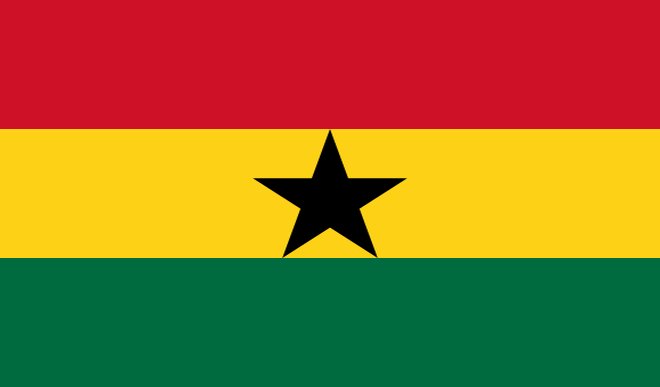Election fever grips Ghana as citizens go to poll Monday
Ghana is currently gripped by apprehension as it holds presidential and parliamentary elections on December 7 with 17.029 million voters expected to cast their ballots.
The streets are already awash with posters, loud campaign music and large crowds at campaign rallies hosted by candidates seeking votes from the electorate.
The political parties are making the final push to drum up support for their candidates by campaigning in difficult and swing areas and energising their supporters in their strongholds to go out massively and cast their vote on Monday.
They are also combining the strength of the parties’ presidential candidates, their running mates, national officers and every other person to win more votes.
The 2020 general election will be the country’s eighth consecutive poll since returning to democracy nearly 30 years ago. Citizens will elect a President and 275 members of parliament.
The two front-runners in the crucial elections, President Nana Addo Dankwa Akufo-Addo and former President John Dramani Mahama are under pressure to ensure violence-free polls while stimulating their strongholds for a higher turnout on the election.
Pressures are being put on the country’s political actors by the international community to ensure a peaceful election, especially as it is the first time a sitting president is being challenged by a former president.
According to Ghana’s Electoral Commission Chairperson, Mrs. Jean Mensa, 17,027,641 persons are expected to take part in this year’s general election.
She said the number comprised 8,810,283 females (representing 51.74 per cent of total voters) and 8,217,358 males (48.26 per cent).
Mrs. Mensa noted that the Greater Accra Region had the highest number of registrants, while the North East Region had the least.
The electoral commission has started deploying electoral materials to the country’s regions.
But, hordes of National Democratic Congress (NDC) supporters on Tuesday took to the streets of Accra to protest against what they described as corrupt activities of the government.
Dubbed: “Yegye yen sika”, to wit: “We are retrieving our money”, the demonstration started at the Kwame Nkrumah Interchange, where hundreds of party supporters had converged, about 8 a.m.
Clad in party colours, the supporters paraded through some principal streets of Accra, amidst singing and dancing to party songs.
Some party executives were present to lead the demonstrators to ensure the success of the exercise.
Ghana’s Inspector-General Police (IGP) James Oppong Boanuh debunked assertions that officers were being bribed to vote for the governing New Patriotic Party (NPP).
Boanuh said the monies given to them were a routine duty allowance and not what the leading opposition politicians were saying in certain quarters, adding that there was a similar disbursement during the COVID-19 lockdown.
But, the African Union (AU) and Economic Community of West African States (ECOWAS) joint mission has advised the Ghanaian authorities to ensure violence-free election.
Besides, the joint mission also urged the country’s electoral commission to ensure strict adherence to COVID-19 protocols.
Also, former President Olusegun Obasanjo appealed to the two major contending parties in the poll, to show tolerance and abstain from conducts capable of discrediting the exercise.
The former president, in a letter to the Ghanaian parties particularly urged both the New Patriotic Party (NPP) and the National Democratic Congress (NDC), being the leading parties, to ensure peaceful, credible and transparent general elections.
The election kicked off with some 109,400 members of the security services, journalists and special service workers who will be on duty on 7 December voting on Tuesday.
The 10 other presidential contestants include two women and one independent candidate, on the ballot. The other candidates include Christian Kwabena Andrews (Ghana Union Movement); Ivor Kobina Greenstreet (Convention People’s Party); Akua Donkor (Ghana Freedom party); and Henry Herbert Lartey (Great Consolidated Popular Party).
The others are Hassan Ayariga (All People’s Congress); Kofi Akpaloo (Liberal Party of Ghana); David Apasera (People’s National Convention); Brigitte Dzogbenuku (Progressive People’s Party); Nana Konadu Agyeman-Rawlings (National Democratic Party) and Asiedu Walter (Independent).
This is the eighth presidential and parliamentary election since Ghana’s Fourth Republic was born in 1992, putting an end to military coups that truncated the First Republic on 24 February 1966, the Second Republic on 13 January 1972 and the Third Republic on 31 December 1981.
Voters will also elect 275 parliamentarians from 914 candidates.
However, the NDP has reiterated that its flagbearer, Mrs. Agyeman-Rawlings will not withdraw from the presidential election, even though she is mourning the death of her husband, former President Jerry John Rawlings.
The party said although it held a news briefing to put to bed rumours of her withdrawal on November 26, the rumours which threaten its chances of victory in the poll have resurfaced in the Volta Region.
Its National Communications Director, Maame Yaa Edusei, said: “She’s (Nana Konadu) still in the race but we are still receiving many calls from the Volta Region that she has pulled out.
“Although she cannot campaign because she is mourning her husband, we have a running mate who has taken up the mantle and is campaigning across the country”. (The Nation)


